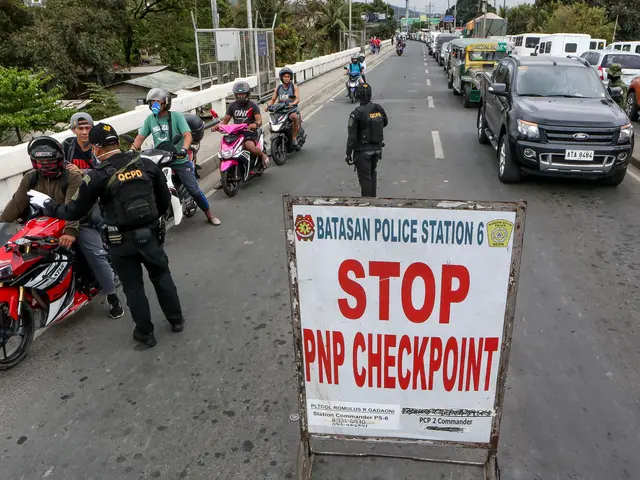Philippine President Rodrigo Duterte on Monday placed the entire Luzon island in the Philippines under the "enhanced community quarantine" to curb the spread of COVID-19.
"I am placing the mainland of Luzon under quarantine until April 12, 2020," Duterte said in a recorded national television address, stressing the need for "stricter measures" like restricting the movement of people.
He also allowed the local government officials to implement measures to contain the COVID-19 in their respective units.
"(The objective) is to strict movement of people to the maximum," the country's Interior Secretary Eduardo Ano told reporters.
Philippine Executive Secretary Salvador Medialdea said in a memorandum that "a strict home quarantine shall be observed in all households" during the lockdown.
"Movement shall be limited to accessing basic necessities; provision for food and essential health services shall be regulated; and there will be heightened presence of uniformed personnel to enforce quarantine procedures," he added.
"Mass public transport facilities shall be suspended, and land, air and sea travel shall be suspended," the memorandum said, adding that outbound passengers intending to depart the Philippines from any of the international airports in Luzon shall be allowed to travel for a period of 72 hours from effectivity of the enhanced community quarantine.
Large mass gatherings are also prohibited, Medialdea said.
He said that inbound international passengers, in transit upon effectivity of the enhanced community quarantine, shall be allowed entry, subject to applicable quarantine procedures if coming from countries with existing travel restrictions imposed by the inter-agency task force (IATF).
He said that classes and all school activities in all levels shall continue to be suspended until April 14 and shall resume on April 15, 2020.
Medialdea said a work from home arrangement shall be implemented in the executive branch, except the Philippine National Police, the Armed Forces of the Philippines and the Philippine Coast Guard, and health and emergency frontline services, border control and other critical services, which shall ensure a skeletal workforce.
"Only those private establishments providing basic necessities and such activities related to food and medicine production, that is, public markets, supermarkets, groceries, convenience stores, hospitals, medical clinics, pharmacies and drug stores, food preparation and delivery services, water-refilling stations, manufacturing and processing plants of basic food products and medicines, banks, money transfer services, power, energy, water and telecommunications supplies and facilities, shall be open," the memorandum read.
The Philippines now has 142 COVID-19 cases, including 12 deaths.
Approximately 58 million Filipinos will be living under lockdown after Duterte imposed an "enhanced community quarantine." The lockdown is part of a raft of restrictions imposed by the government since Sunday.
Luzon is the largest and most populated of the three island groups making up the Philippine archipelago. The National Capital Region (NCR), or Metro Manila, is located on the island. As of 2015, Luzon had a population of nearly 58 million. It is made up of eight regions, 38 provinces, 73 cities, and 698 towns.
Metro Manila is home to nearly 13 million people. But the number increases to 15 million on weekdays when people from outlying provinces flock to the capital to work.
The majority of the COVID-19 patients are residents of Metro Manila.
Several checkpoints have been set up around Metro Manila to monitor the entry of people from the provinces into the NCR. Only those with essential travels are allowed to enter the capital.
On Monday, mall owners announced the temporary shut of their shopping center. But supermarkets, pharmacies and banks inside malls will be open for business.
Schools have been shut down, prompting many students to head out of town to be with their families in their respective hometowns during the lockdown.
To prevent person-to-person transmissions, the government urged people to stay home and avoid large mass gatherings such as movie screenings, concerts, sporting events and other entertainment activities, community assemblies, and non-essential work-related gatherings.
To keep the people out of the streets at night, some of the local government units imposed a curfew from 8 p.m. to 5 a.m. local time.
Several provinces in the central and southern Philippines have imposed a "community quarantine."
 简体中文
简体中文

